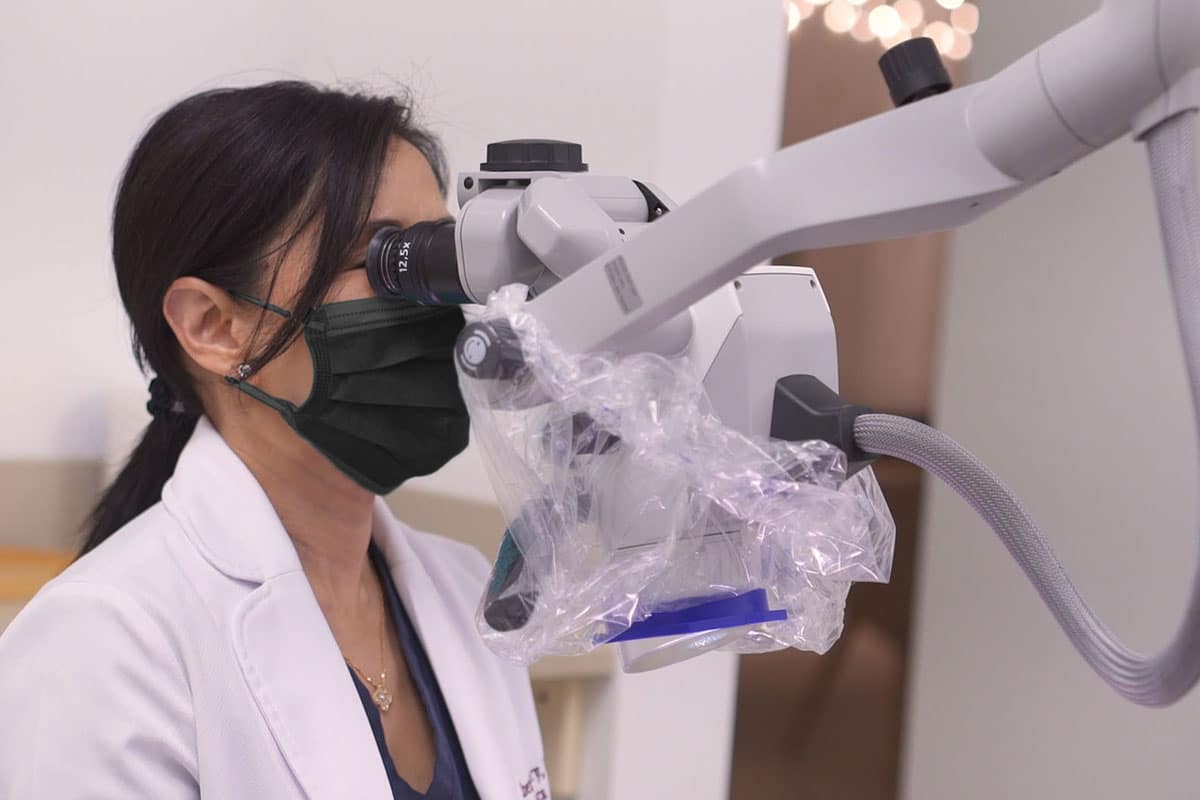
Many patients feel uneasy about root canals. They may have heard misleading information about the procedure from their family or friends. Fortunately, it's easy to debunk these myths and reassure patients about undergoing a root canal.
This blog will break down four common myths and explain how root canals benefit your oral and overall health.
Myth #1: Root canals are uncomfortable
Fact: Root canals relieve tooth pain rather than causing itLet us set the record straight: root canals aren’t painful! This misconception leans on outdated technology and has stuck around only as the punchline of “I’d rather have a root canal” jokes. The truth is, root canals relieve tooth pain by removing infection and inflammation, and there's no one better to perform this treatment than an endodontist—the experts in saving teeth!
Myth #2: Root canals cause severe illness
Fact: Root canals reduce a patient's risk of a systemic infectionAny information stating that root canals cause illness is false! This theory was based on research that has long been disproven. It’s important to know the truth about your oral health and overall well-being so you can make informed decisions; the difference could be saving your natural teeth! Root canals actually reduce the risk of infection spreading to other parts of the body by removing the source of the infection.
Myth #3: Extraction Is Cheaper and More Effective Than A Root Canal
Fact: Saving your natural tooth with a root canal is often more cost-effective in the long runIf the option to save your natural tooth with root canal treatment is available, it's always the best option! Nothing truly functions or feels like your own tooth, so it should always be your first choice. No one is better suited to perform root canal treatment than an endodontist.
While the upfront cost of a root canal may seem significant, the alternative—extracting the tooth and replacing it with a bridge or implant—can be far more expensive. Additionally, when a tooth is removed, the surrounding teeth may shift, leading to further complications, such as tooth decay and gum disease. Keeping your natural tooth is the best choice for long-term oral health.
Myth #4: If My Tooth Doesn’t Hurt, I Don’t Need a Root Canal
Fact: Just because you’re not experiencing pain doesn’t mean your tooth isn’t in need of treatmentNot all teeth needing root canals will cause pain. An infection or damage to the tooth's pulp can occur without noticeable symptoms. Only a trained endodontist can identify these issues through a thorough evaluation, including dental imaging. Ignoring a problem just because it doesn’t hurt could lead to more severe complications down the road.
Endodontists are experts in the intricate inner workings of teeth. They’ll know exactly what your tooth needs to stay healthy, even when you don’t detect anything.
Why Root Canals Are Necessary
Root canals are necessary when harmful bacteria penetrate the tooth’s pulp due to deep decay, cracks, or trauma. This infection can cause severe discomfort and, if left untreated, may lead to abscesses and further health risks. By performing a root canal, the endodontist removes the infection, relieves the pain, and saves the tooth from extraction.
Symptoms Indicating the Need for a Root Canal
If you experience any of the following symptoms, consult your dentist or endodontist for an evaluation:
- Severe tooth pain, especially when biting
- Sensitivity to hot, cold, or sweets that lingers after the source is removed
- Swelling or pimples on the gums
- A broken or severely decayed tooth
- Discoloration of the tooth
Even if you don't have visible symptoms, your dentist may still identify the need for a root canal during a routine exam.
Frequently Asked Questions About Root Canals
Will I need a crown after my root canal?
In most cases, a crown is recommended to protect the tooth and ensure long-term durability.
How long does a root canal take?
The procedure typically lasts between 45 to 90 minutes, depending on the complexity of the case.
Call Perry Endodontics
At Perry Endodontics, we’re committed to helping you make informed decisions about your oral health, and we’re here to guide you every step of the way!
